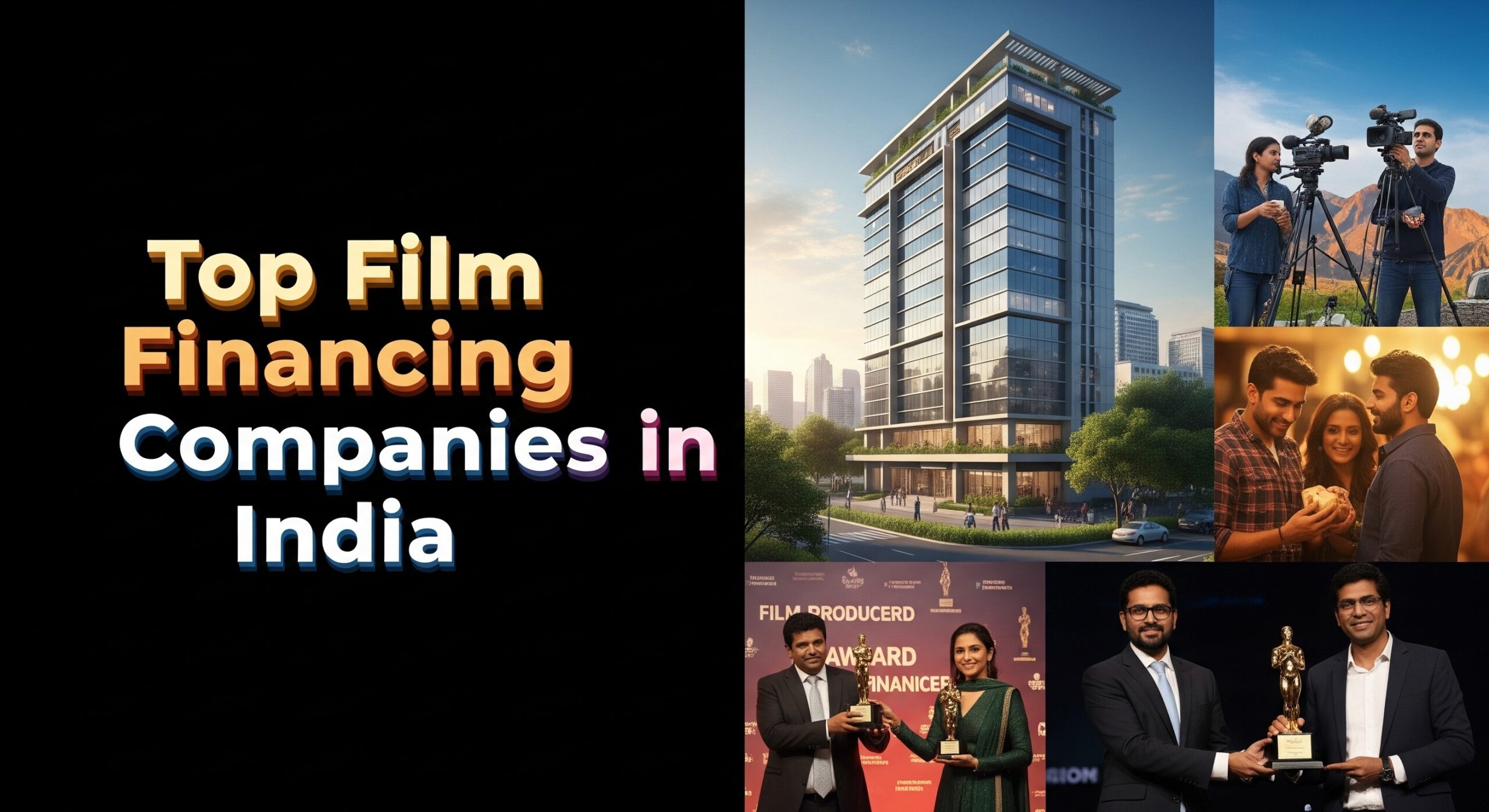Introduction
The Indian media and entertainment industry is projected to hit $100 billion by 2030. It’s one of the most dynamic, high-volume content markets on the planet. Yet for most global buyers, distributors, and even seasoned local producers, navigating its financing landscape feels like a black box.
Who holds the purse strings? Where are the real opportunities hiding? And how do you separate the proven players from the noise?
most deal pipelines are built on outdated contacts and sheer luck. That has to change. In this blog, I’ll break down the key players funding India’s content boom—from powerful government bodies to nimble private studios—and show you how to find verified partners in this booming market.
Table of content
- Introduction
- Key-Takeaways
- The Indian Film Financing Landscape
- Key Players: Government & Institutions
- Major Private Film Financing Companies in India
- Exploring Modern Film Funding Models
- How OTT Platforms are Changing Film Finance
- The Real Challenge: Finding Verified Partners & Deals
- Conclusion
- FAQs
Key Takeaways
| Topic | Description |
|---|---|
| Market Overview | India’s film financing is a complex mix of government bodies, private studios, OTT giants, and emerging alternative models. |
| Key Players | Success hinges on knowing the major players, from the National Film Development Corporation (NFDC) to major studios like Reliance ADA Group. |
| The Challenge | The biggest hurdle isn’t a lack of opportunity, but a lack of centralized, verified data to vet partners and track deals. |
| The Solution | Leveraging a data-first platform like Vitrina provides the global visibility and local discovery needed to build a modern content acquisition strategy. |
Find Your Next Co-Production Partner

The Indian Film Financing Landscape
Forget the myth of a single “Bollywood.” The Indian film industry is a decentralized powerhouse of multiple languages and regional hubs, from Hindi (Bollywood) and Telugu (Tollywood) to Tamil (Kollywood) and beyond.
This diversity creates immense opportunity but also fragments the Indian film industry funding ecosystem.
Unlike Hollywood’s studio-dominated system, financing here is a hybrid model. It’s a mix of corporate houses, high-net-worth individuals, government grants, and, increasingly, global streaming giants.
Understanding this structure is the first step to calculating a realistic film project ROI and structuring viable deals.
Key Players: Government & Institutions
Government bodies play a foundational role in shaping the industry, often focusing on cultural preservation, co-productions, and supporting independent cinema. They are the bedrock of the system.
The Role of the NFDC and the Ministry
- Government Backing
The National Film Development Corporation (NFDC) is the central agency for promoting and financing Indian cinema.
Working under the Ministry of Information and Broadcasting, the NFDC provides government film grants in India, organizes the influential Film Bazaar Goa (Asia’s largest film market), and facilitates international co-productions.
They are your first stop for understanding official policies and incentives.
- State-Level Subsidies
Beyond the central government, various states offer their own state-level film subsidies and film tax incentives to attract productions. These can range from rebates on local spend to logistical support at facilities like Mumbai’s famous Filmcity, creating a competitive landscape for producers looking to optimize budgets.
Major Private Film Financing Companies in India
The bulk of commercial film financing comes from the private sector. This is where the major blockbusters are born. These players range from large, diversified conglomerates to specialized film production houses in Mumbai and other regional centers.
Here are just a few examples of the diverse private companies shaping India’s content landscape, all of whom can be explored further on the Vitrina platform:
- Diversified Conglomerates
Companies like Reliance ADA Group represent the large-scale corporate investment in media and entertainment, with interests spanning production, distribution, and exhibition.
- Regional Powerhouses
Players like KVN Productions (Kannada), Vendhar Movies (Tamil), and Eskay Movies (Bengali) are crucial for anyone looking to tap into regional cinema funding, which is often where the most explosive growth is happening.
- Specialized Production & Financing Entities
Boutique firms like Abi & Abi Pictures and E Entertainment are vital to the ecosystem, often backing unique concepts and new talent. Even non-media brands like Royal Enfield have entered the content space through branded entertainment, blurring the lines of traditional financing.
Stop Guessing, Start Tracking

Exploring Modern Film Funding Models
Beyond traditional equity and debt, the Indian market is adopting more sophisticated financing structures. Smart CXOs look beyond the obvious.
“The future of film finance isn’t just about who you know. It’s about structuring deals that leverage global demand and modern financial instruments.”
- Slate Financing Deals
High-volume production houses are increasingly using slate financing deals to de-risk their portfolios. Instead of funding a single film, investors back a slate of multiple projects, spreading the risk and potential upside. This is a sign of a maturing market attracting serious private equity in Indian cinema.
- Co-Production Treaties
India has active co-production treaties with over 15 countries. These agreements allow producers from different nations to pool resources, access multiple markets, and qualify for incentives in each partner country. It’s a key strategy for scaling budgets and expanding global reach.
- Alternative & Angel Investment
While still nascent, crowdfunding for films in India and the rise of angel investors for films are providing new avenues for independent creators. These models are perfect for niche projects that might be overlooked by major studios.
How OTT Platforms are Changing Film Finance
You can’t talk about modern Indian film finance without talking about OTT platforms. Giants like Netflix, Amazon Prime Video, and Disney+ Hotstar have completely rewritten the rules.
The Shift to Content Commissioning
These platforms have injected billions into the ecosystem, not just by acquiring finished films but through direct OTT content commissioning. With massive budgets like the rumored Netflix India content budget, they have become de facto studios.
They offer producers upfront financing and a global distribution pipeline, fundamentally altering the traditional film distribution models in India.
This has created a massive demand for a clear content acquisition strategy, where platform buyers need to identify and fund projects years in advance. They need visibility, and producers need to know who to pitch to.
The Real Challenge: Finding Verified Partners & Deals
So, the opportunity is massive. But here’s the problem every CXO faces: how do you navigate this fragmented market efficiently? How do you perform due diligence for film investment when information is scattered across dozens of websites, news articles, and personal networks?
The core challenge is a lack of centralized, trusted intelligence. You need a way to:
- Discover Partners
Find a comprehensive, up-to-date list of active film financing companies in India, not just the famous names.
- Verify Credentials
Access profiles of verified media partners, complete with their past projects, key contacts, and areas of focus.
- Track the Pipeline
Use a global deal tracking system to see what projects are in development, who is funding them, and what content is available for acquisition *before* it hits the market.
This is precisely the gap Vitrina fills. We provide the centralized content acquisition, planning, and analytics platform that turns a chaotic market into a clear map of opportunities. It’s about giving you Netflix-level visibility for your content investment and strategy. We connect you with the entire global content supply chain, from post-production financing to distribution.
Conclusion
The Indian film market is no longer just a regional play; it’s a global content engine. But navigating it requires more than just a list of names—it requires a strategic, data-driven approach. By understanding the key players and using modern tools to track the entire ecosystem, you can move from guesswork to deal-making.
What’s the first strategy you’re going to try? Let me know in the comments.Get Your Vitrina Membership Today
Frequently Asked Questions
The best way is a multi-pronged approach. Start by researching government bodies like the NFDC for grants and co-production opportunities. Simultaneously, identify private production houses that align with your genre and budget. For maximum efficiency, use a professional network and data platform like Vitrina to access a verified database of financiers, track their recent activity, and connect with key decision-makers.
The biggest financiers are typically major production houses and studios like Yash Raj Films, Dharma Productions, and Reliance Entertainment. Additionally, the major OTT platforms (Netflix, Amazon, Disney+ Hotstar) have become some of the largest single sources of production and acquisition funding in the industry.
The NFDC supports filmmakers primarily through direct financing for selected projects, organizing co-production markets like Film Bazaar to connect Indian producers with global partners, and offering grants and script development labs. They play a crucial role in nurturing independent and artistically significant cinema.
Absolutely. International funding is increasingly common through official co-production treaties, private equity funds specializing in emerging markets, and pre-sales to international distributors. Platforms that offer global visibility, local discovery are essential for connecting Indian projects with these international film funds.























































